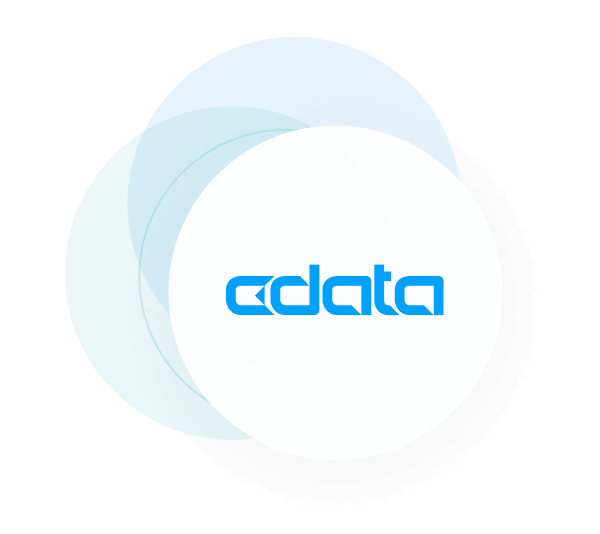Azure Data Studio vs. SSMS: 7 Key Differences & How To Choose the Best Option

Every aspect of a business, from customer interactions to market trends, generates valuable data. The challenge lies not in collecting this data but in organizing and managing it effectively. Data management tools address this challenge, streamlining data organization and enhancing business operations.
This article compares SQL Server Management Studio (SSMS) and Azure Data Studio (ADS), exploring the unique features and functionalities each tool offers for robust data management solutions. With the help of this guide, we clarify the differences between SSMS and ADS in terms of features, functionality, and user experience, helping users select the right tool for their needs!
What is Azure Data Studio?
ADS is a lightweight, cross-platform data management and development tool. It offers connectivity to popular cloud and on-premises databases and supports Windows, macOS, and Linux. It provides a modern editor experience with IntelliSense, code snippets, source control integration, and an integrated terminal. Its extensibility allows users to customize their experience by installing extensions relevant to their workflow.
Azure Data Studio use cases
ADS can be useful in the following scenarios:
- Cross-platform SQL editing: If you need a SQL editing program that works across different platforms.
- Query creation and execution: If your primary focus is creating and running queries, with the ability to visualize results quickly.
- Working with multiple database types: If you work with both SQL Server and PostgreSQL databases.
- Database management: If you are a data engineer, analyst, or system admin looking for an end-to-end database management tool.
- Code management: If you require developer-friendly features such as version controlling and code management.
What is SSMS?
SSMS is an integrated environment for managing any SQL infrastructure. It provides the graphical tools and script editors that developers and database administrators need to interact with, manipulate, and manage SQL Server databases. SSMS can be used to access, configure, manage, administer, and develop all components of SQL Server, Azure SQL Database, Azure SQL Managed Instance, SQL Server on Azure VM, and Azure Synapse Analytics.
SSMS use cases
SSMS can be useful in the following scenarios:
- Managing large and complex databases: SSMS is designed to handle complex database administration tasks in big environments.
- Optimizing database performance: SSMS comes with sophisticated tools that provide granular insights into database performance, allowing you to fine-tune your database to optimize efficiency.
- Advanced data analysis and reporting: SSMS provides advanced data analysis and reporting features like SQL Server Analysis Services (SSAS) and SQL Server Reporting Services (SSRS).
- Database configuration and management: SSMS provides tools to configure, monitor, and administer instances of SQL Server and databases.
- Building queries and scripts: SSMS is used to build queries and scripts, making it a valuable tool for developers.
Azure Data Studio vs. SQL Server Management Studio
While both ADS and SSMS are used for managing and querying Microsoft relational databases, they have some key differences based on their features:
|
Feature
|
Azure Data Studio
|
SQL Server Management Studio
|
|
Platform
|
Cross-platform (Windows, macOS, Linux)
|
Windows-only
|
|
Extensibility
|
Supports extensions and plugins
|
Does not support extensions or plugins
|
|
Focus
|
Primarily for database development and query creation. Works with multiple database systems
|
Used specifically for managing SQL Server, including tasks like database backup, security configuration, and performance monitoring
|
|
User Interface
|
Uses an integrated query editor with advanced development features
|
Makes use of a graphical user interface for managing and interacting with SQL Server databases and objects
|
|
Integration with Cloud Services
|
Excels in seamless integration with Azure services
|
Focuses primarily on on-premises SQL Server management while providing strong integration with Azure SQL Database and other cloud services
|
|
Performance and Resource Usage
|
Lighter and more efficient, designed to run smoothly even on less powerful systems
|
Known for being resource-intensive, often consuming significant system resources
|
|
Type of Software
|
Free, open-source application. Users can file issues and contribute to the project via GitHub
|
Closed-source application
|
Manage your data efficiently with CData
No matter what tool you're using, CData Connect Cloud is an ideal companion for you when it comes to data management. It provides live, federated data access to hundreds of traditional databases, big data sources, and cloud applications within a single interface. This standardized data can then be easily accessed via SSMS by connecting to Connect Cloud, thereby extending their support to non-native applications and databases.
CData Connect Cloud provides a different kind of data virtualization platform, with simplified setup, short development cycles, scalable architecture, and broad SaaS connectivity. It offers robust security and auditing capabilities, ensuring that stakeholders can only access or modify the data they are authorized for in each source system.
As always, our support team is ready to answer any questions you have. Have you joined the CData Community? Ask questions, get answers, and share your knowledge in CData connectivity tools. Join us!
Try CData Connect Cloud today
Discover the power of real-time data connectivity with a free trial of CData Connect Cloud.





